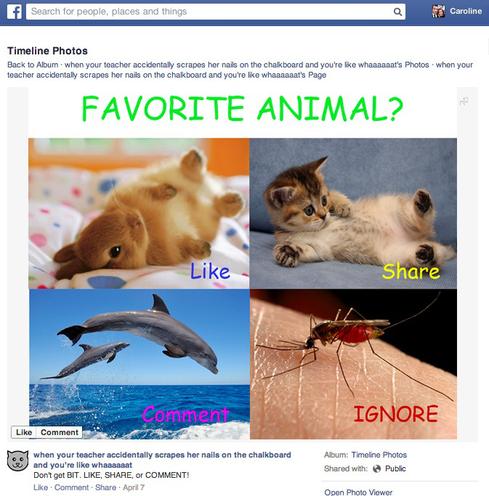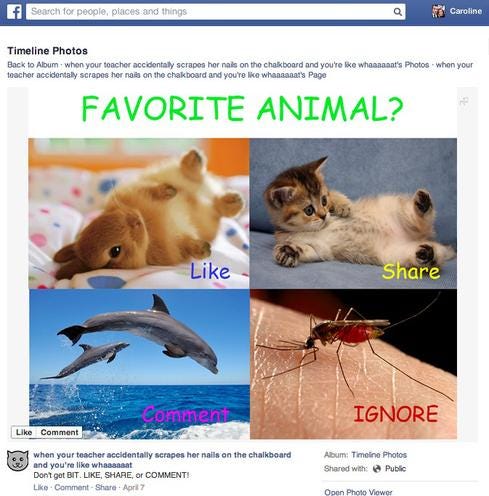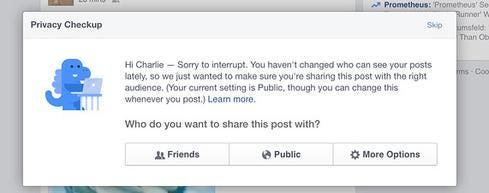Facebook cracks down on spammy posts, tweaks privacy options, and revamps messaging. Here's what it means to you.


10 Famous Facebook Flops
10 Famous Facebook Flops (Click image for larger view and slideshow.)
From privacy tweaks to major mobile app changes, Facebook has had a busy week.
The social network announced a handful of privacy updates to help you understand who you share content with and how your friends' sharing affects you. It also confirmed plans to kill in-app mobile messaging. Facebook will now require users to download a separate messaging app to chat in real-time with friends. Finally, Facebook promised to help clean up your news feed by cracking down on three types of posts: like-baiting, frequently circulated pictures and videos, and spam links.
Here's a deeper look at its three announcements, plus details on what they mean to you.
1. Facebook cracks down on spam.
Facebook knows that spammy content has cluttered news feeds. On Friday, it announced changes that will target three categories of spam behavior.
"Like-baiting" refers to posts that explicitly ask readers to like, comment, or share the post in order to get more distribution. According to Facebook, these types of posts are 15% less relevant than other stories with a comparable number of likes, comments, and shares.
Facebook said it will make changes to better detect these posts and ensure they aren't shown more prominently in users' news feeds than more relevant stories from friends and other pages.
Figure 1: 
[Get a grip on your account. Read 10 Most Misunderstood Facebook Privacy Facts.]
The social network will also crack down on frequently circulated content, such as a photo or video that users and pages repeatedly upload. "We are improving news feed to deemphasize these pages, and our early testing shows that this change causes people to hide 10% fewer stories from pages overall," Facebook said in an announcement.
The third change will target spam links. Some stories in the news feed use language or formatting to trick users into clicking to a website that may promise to link to a photo album but instead takes the user to ads.
"The update we're making today improves news feed to reduce cases of these spammy links, and in our early testing we've seen a 5% increase in people on Facebook clicking on links that take them off Facebook," the company said. "This is a big increase in the context of news feed and is a good sign that people are finding the remaining content in their news feed more relevant and trustworthy."
2. Facebook tests new privacy updates.
Earlier this week, Facebook confirmed a handful of changes that it plans to test to help you understand who you're sharing content with and how your friends' sharing affects you. These changes include clearer explanations of your settings, additional controls for your photos, and reminders when you're about to post publicly.
Over the past few weeks, some Facebook users noticed
a friendly new face -- the privacy dinosaur. This "privacy checkup" message warns users when they're about to share a status update, photo, or link that will be visible to anyone. The popup displays a cartoon dinosaur using a laptop and asks you to verify with whom they want to share the post.
Figure 2: 
According to Facebook, it will update its audience selector menu in your status update box by adding details below each audience option. For example, Facebook will clarify Public with "Anyone on or off Facebook" and Friends with "Your friends on Facebook."
You may also notice a change in the status update box on your mobile device. In a test, Facebook will move the audience selector to the top of the update status box in a new "To:" field, similar to what you see when you compose an email.
Lastly, Facebook will let you change the privacy setting of your old cover photos, which are now automatically public. (Facebook already lets you change the privacy settings of your former profile photos.)
3. Facebook drops in-app messaging.
Figure 3: 
Facebook will soon require users to download two separate apps in order to chat with friends. The company confirmed that it plans to kill the messaging feature in its main iOS and Android apps and instead require users to download Messenger to chat with friends. Some Facebook users in Europe already received notifications alerting them to the change.
Users will have two weeks to download Messenger before the service in the main Facebook app disappears. Facebook will alert users several times before the feature disappears, though no date has been set.
Although the change will affect most mobile app Facebook users, Facebook won't require it for lower-end Android devices with memory limitations -- these users can still chat in-app, the company said. Facebook's iPad app is not affected either, though that will likely change.
Trying to meet today's business technology needs with yesterday's IT organizational structure is like driving a Model T at the Indy 500. Time for a reset. Read our Transformative CIOs Organize For Success report today (free registration required).
About the Author(s)
You May Also Like







